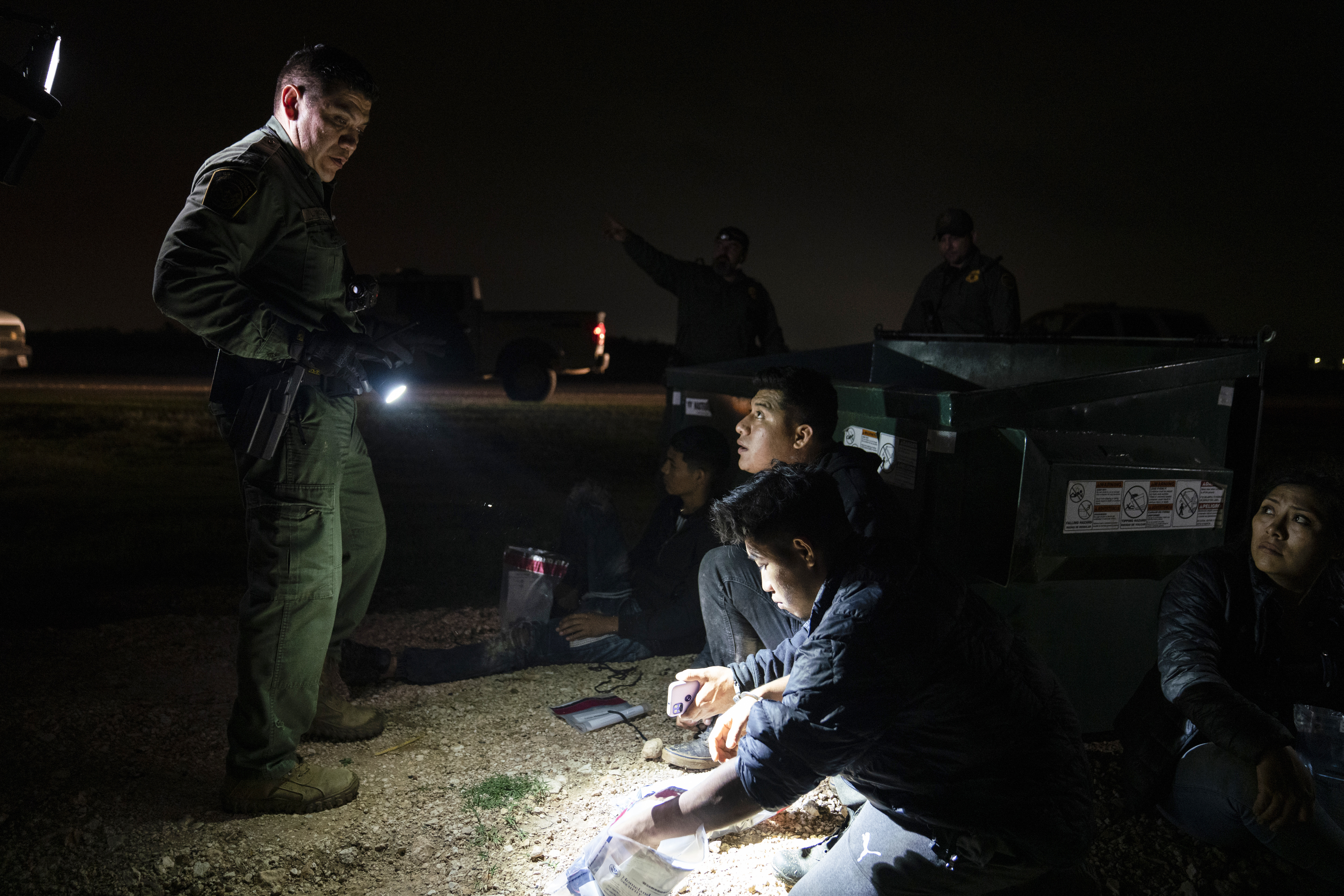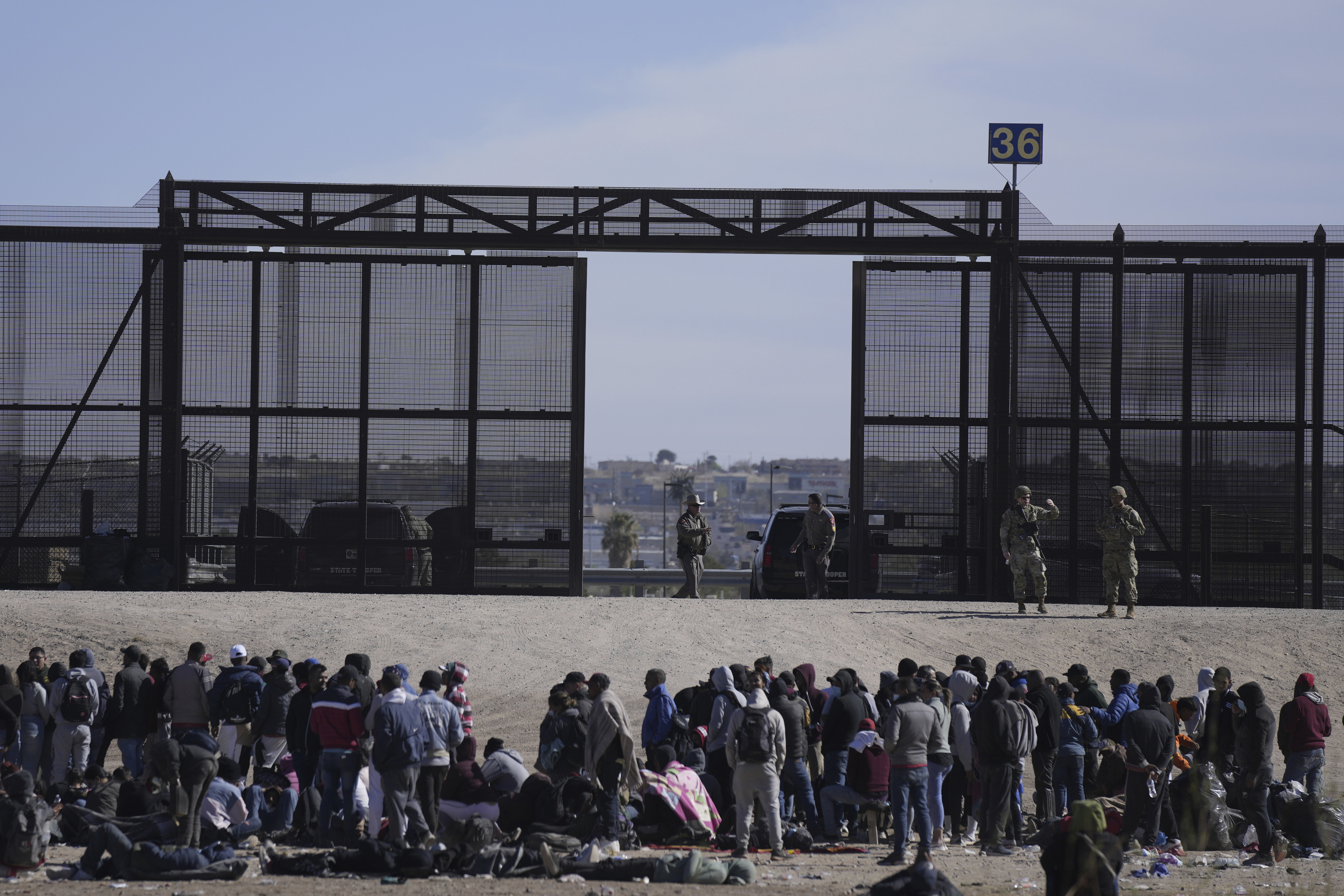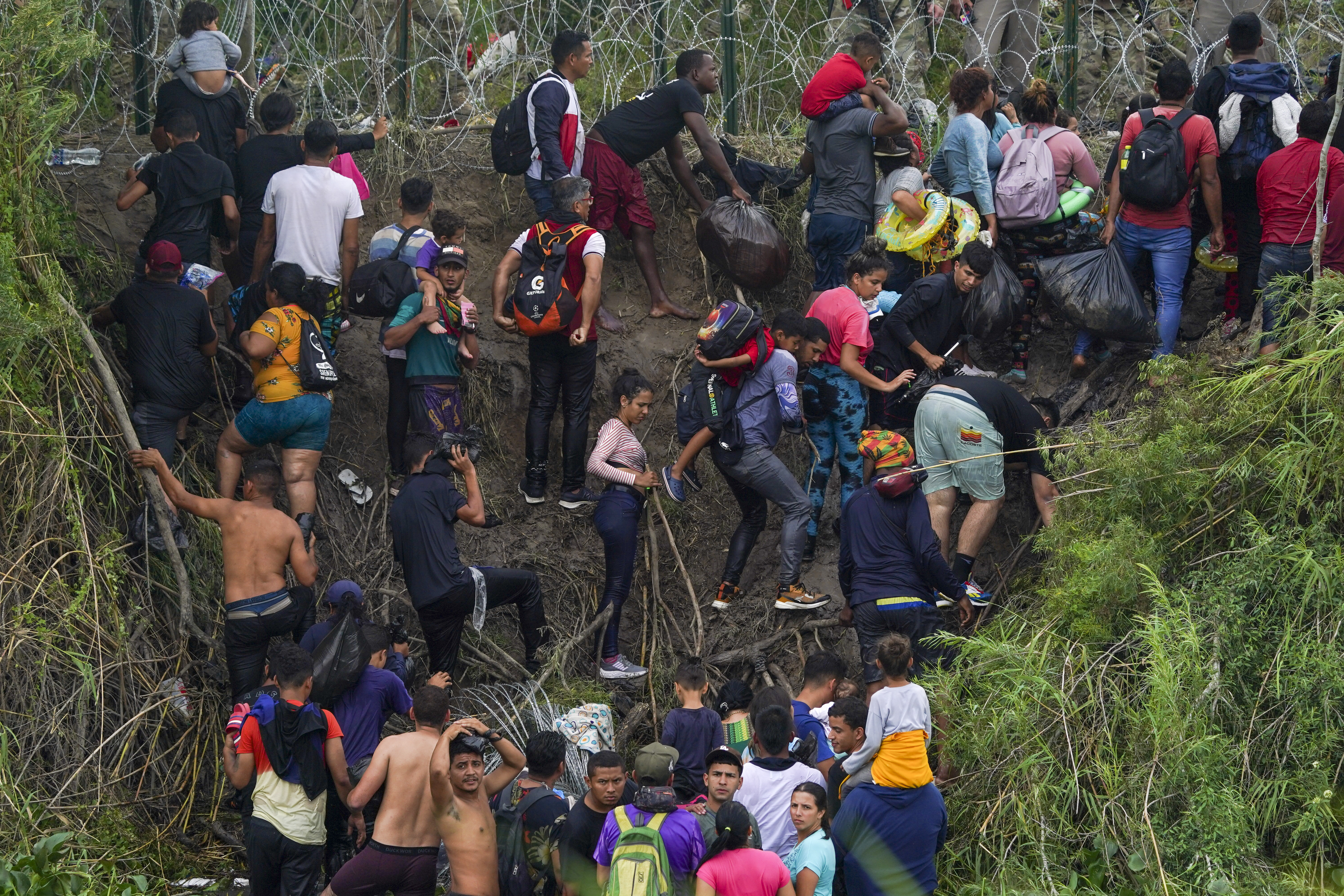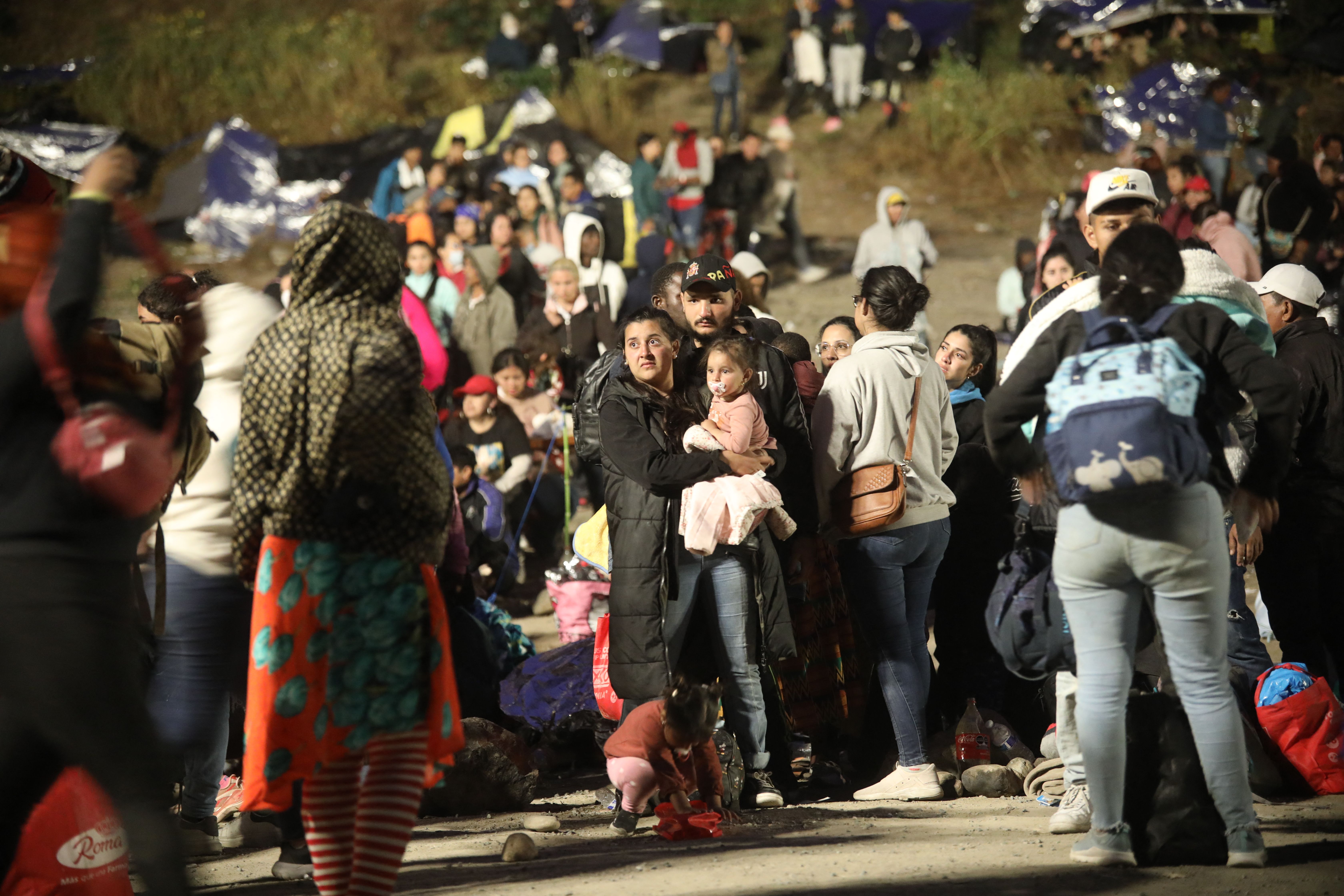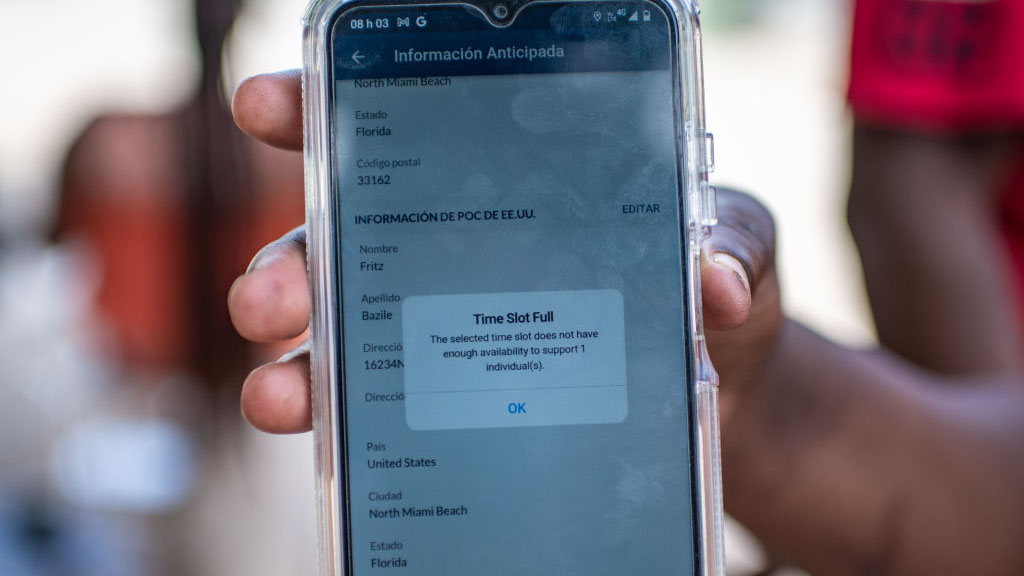A Trump-era public health restriction that prevented asylum-seekers from crossing the border into the U.S. amid the coronavirus pandemic is set to expire on Thursday.
The policy, known as Title 42, was widely criticized by Democrats and immigration advocates. But what is Title 42, and what affect could its ending have on U.S. immigration? Here’s what you need to know.

What Is Title 42?
Get top local stories in San Diego delivered to you every morning. Sign up for NBC San Diego's News Headlines newsletter.
Title 42 is an obscure public health rule that gives federal health officials the authority during a pandemic to turn away asylum-seekers in order to limit “the introduction of communicable diseases.” This legal authority is named for a 1944 public health law to prevent communicable disease.
In March 2020, the Centers for Disease Control and Prevention under the Trump administration invoked the policy, arguing that it was needed in order to curb the spread of COVID-19 as coronavirus cases soared in the U.S. The order gave border patrol agents the right to expel migrants seeking asylum, without giving them an opportunity to explain their persecution case.
While officials said at the time the move was a way to keep COVID-19 out of the United States, advocates, public health officials and even some within Trump's administration criticized the decision as an excuse to seal the border to migrants unwanted by then-President Donald Trump.
When Does Title 42 Expire?
On Thursday, May 11 at 11:59 p.m. EST, the government will end Title 42, under which migrants have been expelled from the U.S. more than 2.8 million times since March 2020.
Why Is Title 42 Ending?
The Biden administration had repeatedly sought to end the policy, but its plans were delayed by legal challenges from Republican states' attorneys general. But once the pandemic waned, the public health order that led to using Title 42 was rendered moot, and the U.S. Supreme Court canceled arguments in the case. Another administration effort to unwind the policy had been blocked by a federal judge in Louisiana.
How Will the End of Title 42 Affect Immigration?
The Biden administration on Thursday will begin denying asylum to migrants who arrive at the U.S.-Mexico border without first applying online or seeking protection in a country they passed through.
The rule announced Wednesday is part of new measures meant to crack down on illegal border crossings while creating new legal pathways, including a plan to open 100 regional migration hubs across the Western Hemisphere and granting humanitarian parole to 30,000 people a month to enter the country from four countries. U.S. officials have detailed steps they've taken, including increasing deportation flights, as they prepare for what many are expecting to be a substantial increase in migrants at the U.S.-Mexico border.
It is a key part of the U.S. strategy to address border crossings that rose to all-time highs even with Title 42 in effect. While stopping short of a total ban, it imposes severe limitations on asylum for those crossing illegally who didn't first seek a legal pathway. It includes room for exceptions and does not apply to children traveling alone. It was first announced in February.
Many migrants, spurred by concerns that it may soon become harder to stay in the U.S., were trying to cross before Title 42 expires and the new rule takes effect at the end of the day Thursday.
End of Title 42
Under Title 42, border officials have quickly returned people — and they did so 2.8 million times since March 2020. But after the restrictions expire Thursday, migrants caught crossing illegally will not be allowed to return for five years. They can face criminal prosecution if they do.
A lot of these consequences have been met with harsh criticism by immigrants' rights groups who have gone so far as to compare the policies to Trump's and say the right to apply for asylum on U.S. soil is sacrosanct. Much of the Biden administration strategy is also facing legal peril in the coming weeks. The proposed rule limiting asylum is almost certain to be the subject of lawsuits. And Republican-leaning states want to stop the Democratic administration's use of humanitarian parole on such a large scale.
Which Countries Have Been Most Affected by the Policy?
A study by the nonprofit Human Rights First found that Title 42 has impacted mostly migrants from El Salvador, Guatemala, Haiti, Honduras, Venezuelans, Colombia and Mexico. The same study also found the policy "discriminatorily" targeted Haitians and other Black asylum seekers, noting that the flood of Ukrainian refugees fleeing the Russian invasion have been able to enter through the Southern border while those fleeing violence in Central American and Caribbean countries are blocked.
The study also found that migrants seeking safety who were turned away faced kidnappings, rape, torture and other violent attacks in Mexico.
The Associated Press and NBC News contributed to this report.

